50 years of Chitralaya Gopu’s Kasethan Kadavulada (1972) – An authoritarian stepmother, a fake godman, and a secret money safe
Long before R. Kannan’s remake of Kasethan Kadavulada, the 1972 film was a significant milestone in the Tamil comic caper genre
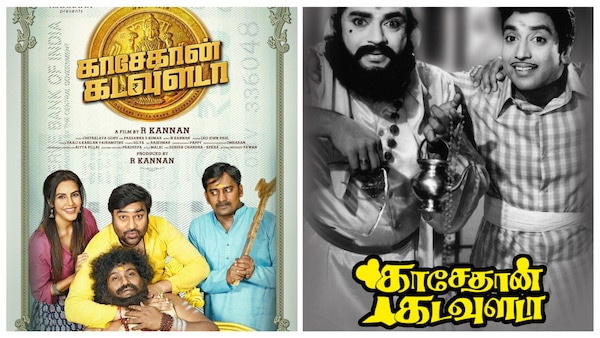
Last Updated: 07.01 PM, Jun 23, 2023
Chitralaya Gopu wrote and directed a play called Kasethan Kadavulada (‘Only money is god’) that became so popular that AVM Studios bankrolled a caper comedy movie of the same name in 1972. The film version showcased some of the finest Tamil comedy stars of that time such as Manorama, ‘Thengai’ Sreenivasan, ‘Vennira Aadai’ Moorthy, Rama Prabha, and Suruli Rajan. The film also featured character actors with a penchant for comic timing, like Muthuraman, Srikanth, Lakshmi and M.R.R. Vasu. An interesting piece of trivia is that some of the actors in the film have also performed in the original stage play.
At the heart of Kasethan Kadavulada (1972) is the authoritarian Lakshmi Varaham (Manorama), who is the second wife of Sivaswamy (‘Vennira Aadai’ Moorthy). Sivaswamy has two grown-up children from his previous marriage – Prema and Ramu (Muthuraman). Lakshmi controls the purse strings in the family, and even Sivaswamy must ask her for a daily allowance to buy his snuff powder.
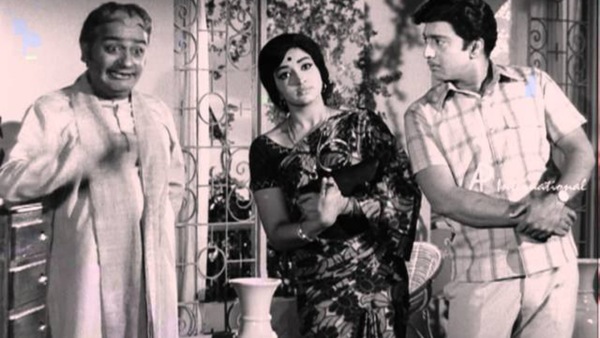
To manage her social commitments, Lakshmi advertises for a live-in lady secretary. An orphaned young woman, Ramaa (Lakshmi), wishes to apply for the job and requests a conduct certificate from her father's psychiatrist friend. At the same time, a patient at the mental health institution, also called Ramaa (Rama Prabha), is to collect a discharge certificate that cites that she is sane at most times, but will become violent if denied her wishes. What follows is a comedy of errors with Ramaa 1 carrying an interchanged letter of introduction to Lakshmi who, fearing she may turn violent, grants her the job. Lakshmi kindly intends to keep Ramaa 1 's mental illness a secret so she is not stigmatised.
Many covet Lakshmi’s wealth, presumed to be stashed in a secret safe in an unknown location within the house. Lakshmi’s stepson, the unemployed Ramu. is eager to financially aid his sister, Prema. However, Lakshmi has her reasons for refusing to help her. In an act of desperation, Ramu and his cousin, Mali (Srikanth), who owes money to a moneylender, persuade their friend, Appasamy (‘Thengai’ Sreenivasan), to join them in their plot to steal from Lakshmi’s secret safe. Appaswamy runs a tea shop and often brags about his safe-cracking skills. They tutor him to behave and speak like a godman, Badrinath Swamy Sukranada, to infiltrate the spiritually-inclined Lakshmi's household and break into the safe.
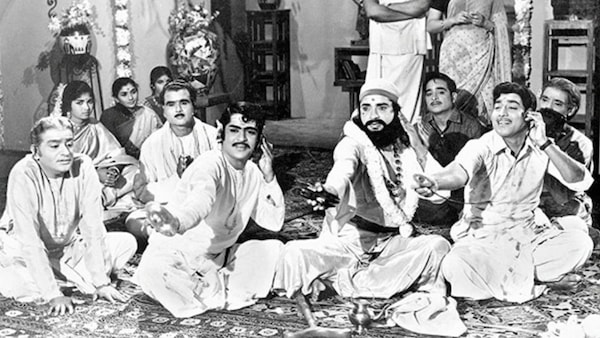
In a case of 'enemies-turned-lovers', Ramu and Ramaa 1 fall in love. Ramu uses this to his advantage by getting her to cover up his smaller deceits, and she soon becomes an unwitting accomplice in his plot to steal from Lakshmi’s safe. Lakshmi does not suspect Ramu’s and Mali’s new-found religious zeal, nor does she suspect the ‘Madras bashai’, or even the local colloquialisms that frequently creep into the fake godman’s speech.
What follows is a comedy of mistaken identities and many subplots to steal Lakshmi’s wealth, with a series of whispered secrets that come full circle to Lakshmi, who now believes that Ramaa 1 has been creating conflict within the family. Lakshmi is deeply upset that this was despite her generosity in allowing a mentally unstable person to work for her. The interchanged letter of introduction comes to light, and even Ramu believes Ramaa 1 may be unstable. She is unable to prove her sanity, and her understandable anguish is mistaken for a bout of rage.
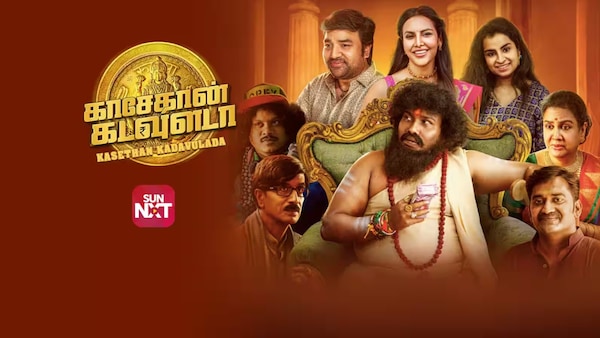
After a climax with confusion aplenty where the money keeps changing hands, the movie ends with Lakshmi realising that her authoritarianism had caused Ramu, Mani and Mali to steal from their own family.
In a plot with as many characters as this, it would have been convenient to typecast Lakshmi as a miser, but she is depicted as being tightfisted only with her family and is otherwise generous to causes she believes in. Lakshmi is also depicted as showing solidarity with Ramaa 1 even when she believes her to be unstable.
An interesting facet of this movie is the depiction of the lady secretary Ramaa 1 as fearless and fiercely loyal to Lakshmi. She catches people red-handed and reports misdeeds to Lakshmi at every stage. But her love for Ramu blinds her to his faults and the inconsistencies surrounding him. The confrontation between them that one might expect as closure – about his using her to get to the safe, and not believing her to be sane - does not happen.
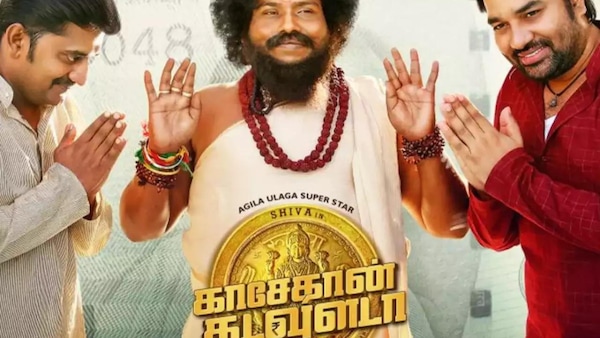
The movie is renowned for music by M.S. Viswanathan, especially the spirited 'Jambulingame Jadadhara' that distils the flamboyance of M.S. Viswanathan’s 1970s sound in a devotional song featuring the fake godman and his gaffes. 'Mella Pesungal' is a duet that follows the song filming convention of the times, with elaborate film sets and elaborately costumed Ramaa 1 and Ramu hushing each other about keeping their love under wraps while dancing on giant objects ironically known for sound or communication, like a loudspeaker, a horn, and a telephone.
Fifty years later, R. Kannan’s remake of this cult comedy features ‘Mirchi’ Shiva as Ramu, Yogi Babu as the fake godman, Karunakaran as Ramu's accomplice cousin, Priya Anand as the secretary, and Urvashi as the stepmother. The song, ‘Jambulingame Jadadhara’ gets an update that remains true to the original with only a more modern aesthetic added to it. It remains to be seen what new characters and situations are introduced in this remake, and what elements of the comic caper genre work well in this updated, contemporary retelling of a beloved classic.
Watch Kasethan Kadavulada on OTTplay Premium.
(Views expressed in this piece are those of the author, and do not necessarily represent those of OTTplay)
(Written by Saritha Rao Rayachoti)

